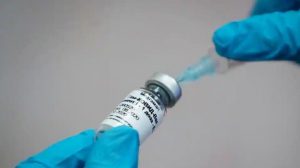With two vaccines against coronavirus disease (Covid-19) already getting emergency use authorisation (EUA) in India, recruiting trial subjects is likely to become difficult for the companies next in line. India’s apex drug regulator approved Serum Institute of India’s Covishield vaccine and Bharat Biotech’s Covaxin at the beginning of the year.
The companies have said just the news that a vaccine will be available soon has had an adverse impact on recruitment . “Even without the emergency use authorisation, there were many press releases that the vaccine is soon going to be available. And, that has hurt us badly in terms of recruitment because a lot of people asked us whether they should still be participating in the clinical trial if a vaccine was going to be out soon,” said Dr V Krishna Mohan, executive director at Bharat Biotech, in a webinar held just before the approvals.

He said, unlike in the United States and United Kingdom, the clinical trials in India are happening at the same time as vaccines are transitioning to EUA.He said that the challenge was bigger for Bharat Biotech as they were focussing on people in the older age groups. The oldest person to enrol for the Covaxin trial was 97, he said.“Hospitals have also asked us whether it is ethical to continue a clinical trial when you have an EUA. These questions need to be answered,” said Dr Mohan.There are at least six other vaccines under human clinical trial in India. These are: the indigenously developed ZydCov-D by Zydus Cadila that is to start the phase III trial, the Russian Sputnik V vaccine whose phase II and III trial is being conducted by Dr Reddy’s, Serum Institute of India’s second vaccine NovaVax that is being considered for a phase III trial, vaccine candidates by Biological E and Gennova that are to begin phase I trials, and Bharat Biotech’s second nasal vaccine candidate.
For Dr Pankaj Patel, chairperson of Cadila healthcare, the challenge would be the time taken for recruitment. He said, “The number of vaccines that are being developed or have been developed in the past in India – there are already vaccines available still companies were able to conduct clinical studies and get volunteers and approval. The challenge would be in terms of the speed of recruitment and not in getting the volunteers to come in.”
The major concern, however, is regarding subgroup analyses as those who are the most vulnerable will likely start getting the vaccine soon. “If we think about Covid-19 vaccines, the first goal is to protect the vulnerable and we are working towards the vaccine being efficacious. We have seen results from Pfizer, Moderna, and Oxford/AstraZeneca, these are based on overall efficacy. But is overall efficacy what we really measure in the most vulnerable?” said Dr Gagandeep Kang, leading vaccine expert and professor at the Wellcome Trust Research Laboratory at Christian Medical College-Vellore.
“We have some indicators that the elderly are protected, but we do not know with sufficient confidence that the vaccines are working in these vulnerable groups. Similarly for children, the trials have only just started. Now, if you have an efficacious product developed in the middle of a pandemic, there is an ethical imperative to start to use it for vulnerable populations which only increases the challenge for our ability to assess efficacy in those sub groups,” she said.
The real challenge would be three to four months down the line, said Drug Controller General of India VG Somani at the webinar. “There is definitely a little bit of challenge once something is available. But they will have to wait till their turn comes and it is not very clear to the common public at present when that turn will come. So probably it will not be that big challenge for the coming three to four months,” he said.